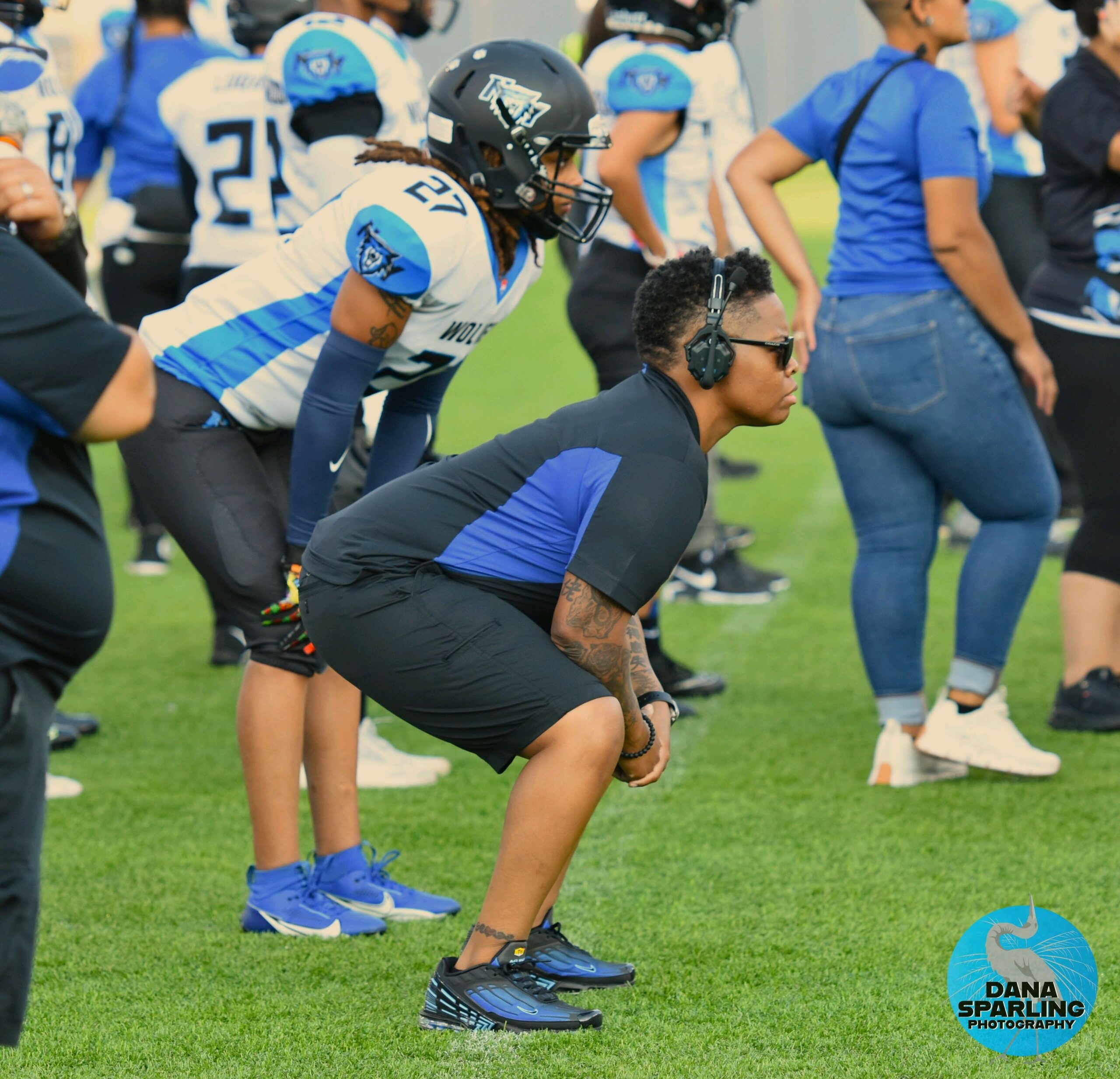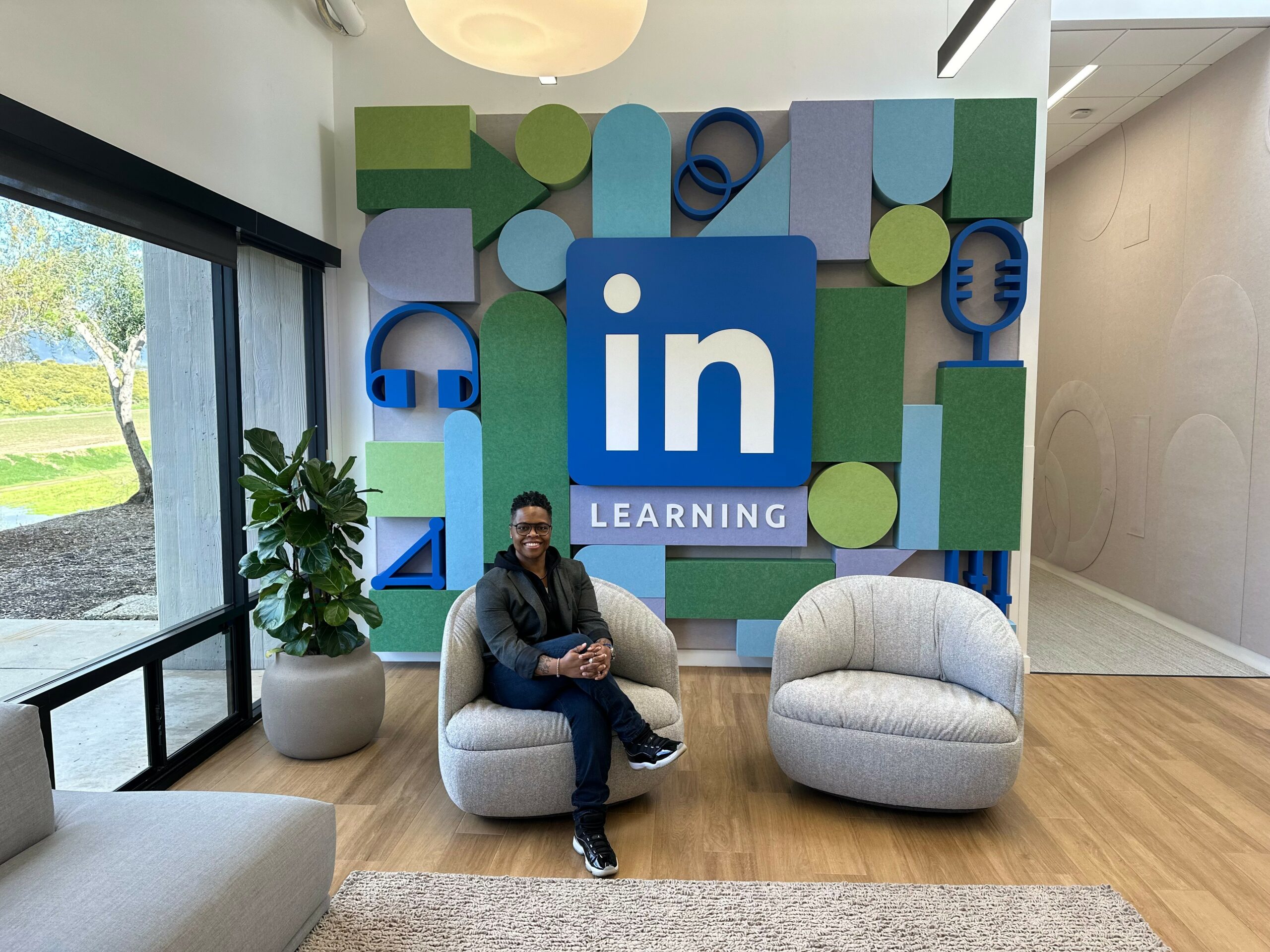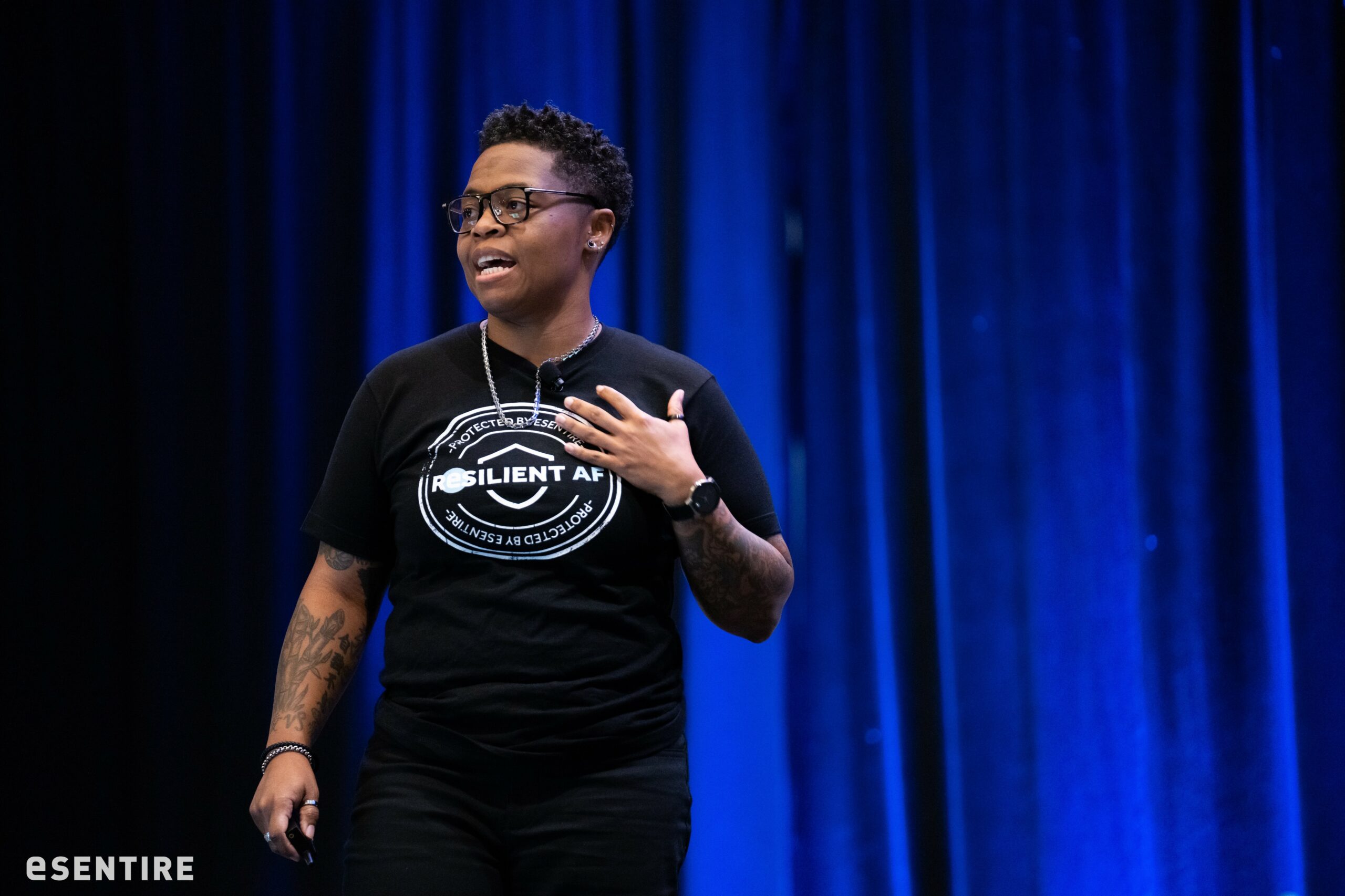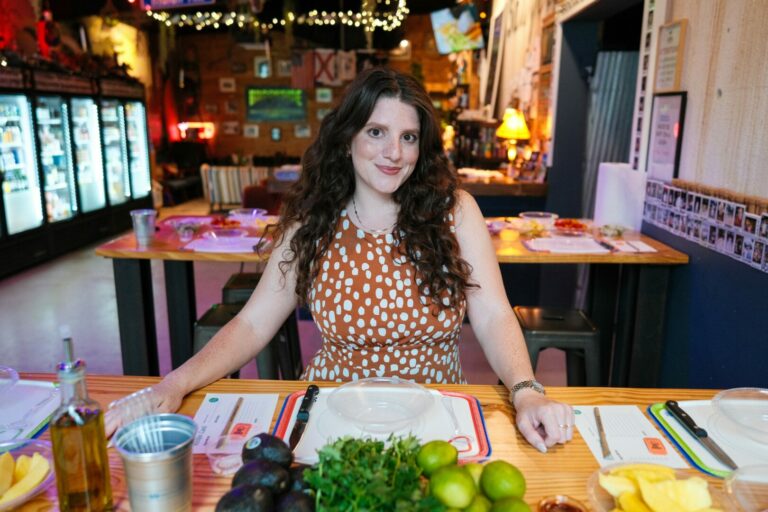We’re excited to introduce you to the always interesting and insightful Tia Hopkins. We hope you’ll enjoy our conversation with Tia below.
Tia, first a big thank you for taking the time to share your thoughts and insights with us today. I’m sure many of our readers will benefit from your wisdom, and one of the areas where we think your insight might be most helpful is related to imposter syndrome. Imposter syndrome is holding so many people back from reaching their true and highest potential and so we’d love to hear about your journey and how you overcame imposter syndrome.
I believe it’s important to strip imposter syndrome of its power. If we break down the two words and looks at their definitions, we can see imposter syndrome for what it is and begin the process of putting it in its place and not allowing it to negatively impact us or create mind chatter that detracts us from believing in ourselves, our capabilities, and our superpowers. In short, an imposter is someone who pretends to be someone else, and a syndrome is a group of symptoms that consistently occur together.
When I have those moments where I’m wondering “how did I get here?”, “do I belong here?”, or “am I really qualified for this?”, I remind myself that while I might feel like an imposter in that particular moment, I didn’t pretend to be someone I’m not in order to get to where I am. The other side of this is, as the definition says, in order for a syndrome to exist, the feeling has to occur consistently. My perspective is that in a moment where I’m doubting myself or feeling insecure or uncertain, I simply call it what it is… self doubt, insecurity, or uncertainty. I accept it as a completely normal feeling, I process it, and I move on.
The key to stripping imposter syndrome of its power is not allowing the feeling to persist – or be consistent. It’s ok to be nervous or scared, or feel ill-prepared, as long as we address it, and move on. It never goes away. Every new opportunity is both exciting and scary. Embrace it, don’t run from it.
Appreciate the insights and wisdom. Before we dig deeper and ask you about the skills that matter and more, maybe you can tell our readers about yourself?
I began my career as a high-speed internet installer in the early 2000s, which sparked my interest in the information technology field, and ultimately led to my focus on cybersecurity. I’ve spent nearly 25 years in the IT and IT Security industries and I am currently the Chief Cyber Resilience Officer & Field CTO at eSentire. In addition to my role at eSentire, I am an adjunct professor of Cybersecurity, women’s tackle football coach, keynote speaker, published author, non-profit founder and CEO, LinkedIn Learning Instructor, and member of the Forbes Technology Council.
I struggled a bit trying to find my way at the beginning of my journey. I didn’t have a mentor or anyone that I could really talk to that could help me understand the industry or how to prepare and position myself. In my latest book ‘Securing Our Future: Embracing the Resilience and Brilliance of Black Women in Cyber”, (co-authored with 15 other women), I tell the story of my career journey and how I went from being a four time college dropout to where I am today (including now holding four degrees: BS in Information Technology, MS in Information Security and Assurance, MS in Cybersecurity and Information Assurance, and an Executive Master of Business Administration; and currently pursing a 5th: PhD in Cybersecurity Leadership.
I have branded myself The Cyber Equalizer (inspired by Queen Latifah’s character Robyn McCall) because I am passionate about using my knowledge, skills, and experiences in the cybersecurity and technology industries to provide guidance to those with limited resources or nowhere to turn for support – whether it is a newcomer to industry trying to define their career path, or a C-suite executive tasked with aligning technology strategies with business outcomes. I am also very passionate about giving back to the community, which is why I founded Empow(H)er Cybersecurity (a non-profit organization aimed at inspiring and empowering women of color to pursue cybersecurity careers), sit on the board of Cyversity (a non-profit association dedicated to diversifying, educating and empowering women, traditionally underrepresented minorities, and veterans in their pursuits and growth within the cybersecurity industry), and continue to create content focused on moving the industry forward such as blogs, keynote presentations, podcasts, webinars, and books such as ‘Hack the Cybersecurity Interview.’
Although I don’t do what I do for recognition, I am recognized as an industry influencer and thought leader. I have been quoted in publications such and CSO Online, Dark Reading, The Wall Street Journal, and Fortune. In terms of awards, I was most recently recognized in 2023 as one of the Top 25 Leaders in Cybersecurity by Cybersecurity Hub, received a Lifetime Achievement Award from AmeriCorps and the Office of the President of the United States, and earned the SANS Difference Makers People’s Choice Award for Team Leader of the Year.
There is so much advice out there about all the different skills and qualities folks need to develop in order to succeed in today’s highly competitive environment and often it can feel overwhelming. So, if we had to break it down to just the three that matter most, which three skills or qualities would you focus on?
I would have to say confidence, resilience, and relentless curiosity have had the greatest impact on my overall journey. Of course, there are hard skills that are important as well, but in terms of what sets me apart from my peers and continues to propel my career forward, the hard skills become table stakes at some point, and it’s the unique differentiators – those that I mentioned – that have consistently made the difference for me.
It really comes down to knowing yourself, what you bring to the table, what you don’t bring to the table (this is important because no one know everything and that’s ok, so be educated for sure, but don’t stress yourself out trying to be an expert in areas that are outside your domain), having the confidence to speak to and demonstrate those attributes, and also being a lifelong learner.
If you are early in your journey, make sure you know what drives you, what you’re good at, the things people rely on you for… this combination of things becomes your value proposition. Then, layer that value prop on top of your desired career path and make sure it shines through in everything you do as you makes connections, build a portfolio, and develop the hard skills.
Any advice for folks feeling overwhelmed?
It’s not uncommon for me to feel overwhelmed at least once a week. For me, the feeling starts to creep up when I feel like the many things I’m responsible for exceed my ability or capacity to manage them effectively. When I experience this, I pause and process, and usually the reason for the filling fits into one of three categories: I’m trying to do too much, I’m trying to get things done too fast, or I’m headed for burnout (sometimes I’m already there). Once I identify where the feeling is coming from, there’s a handful of things I typically work through to manage myself:
1. Breathe. I wasn’t always a big believer in breathing exercises, but they really are powerful tools. Breathing exercises can help you stabilize yourself when you’re feeling overwhelmed by reducing stress hormones, increasing oxygen flow and reducing CO2 levels, improving body awareness, and shifting your focus – creating a state of mindfulness.
2. Take a break. Sometimes we just go too hard. Over the years, I’ve gotten much better at recognizing when I’m banging my head against the wall trying to get something done. There have been times where I continue to push. and something should’ve taken me 45 minutes took 3 or 4 hours because I was exhausted. Taking a break or focusing on something else is a great way to reset and get a clearer perspective. Even if it’s just for a few minutes.
3. Reprioritize and get organized. This is important because when I’m overwhelmed everything feels like a priority. And when everything is a priority, nothing is truly a priority. I find that listing out the things I need to get done helps me feel a lot more organized and in control vs having everything swirling around in my head. A lot of times, just seeing the list either helps me realize I don’t have as much to do as I think I do, and sometimes it forces me to be honest with myself and accept that I can’t everything done within the timeframe I’ve set for myself, so something has to be deprioritized.
4. Set boundaries. This one is, and probably always will be, a work in progress for me. I’m extremely passionate about the work I do and helping others succeed, so it’s easy for me to say yes to everything I’m asked to do. The problem is, the more of my time and energy I give to others in support of their needs, the less time and energy I have to dedicate to my own. Saying no is not a bad thing, and setting and communicating boundaries is important. Also, it doesn’t always have to be a no. It can be a ‘not right now’. What I’ve learned is that people will find a way. Either they will work with you on prioritizing, or they’ll find someone else to help them get what they need. Not being available or not having the bandwidth to take on another task doesn’t make you a bad person.
I don’t necessarily do all these things every time I feel overwhelmed – it just depends on why I’m feeling that way and what I think I need most at the time to bring me back down.
Contact Info:
- Website: tiahopkins.com
- Instagram: @thecyberequalizer
- Linkedin: linkedin.com/in/yatiahopkins
- Twitter: @yhopkins



Image Credits
I have the rights to the photos.




